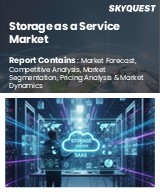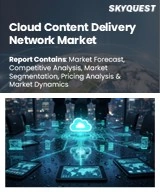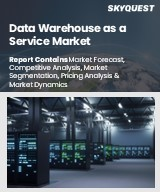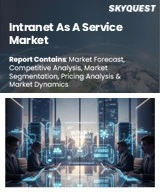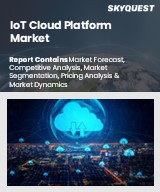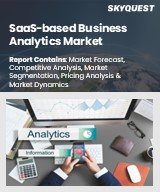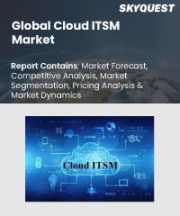
|
시장보고서
상품코드
1538609
프라이빗 클라우드 시장 규모 조사 : 유형별, 서비스 모델별, 조직 규모별, 업계별, 지역별 예측(2022-2032년)Global Private Cloud Market Size study, by Type, by Service Model, by Organization Size, by Vertical, and Regional Forecasts 2022-2032 |
||||||
세계의 프라이빗 클라우드 시장은 2023년에 약 1,146억 달러로 평가되며, 예측 기간인 2024-2032년 8.9% 이상의 건전한 성장률로 성장할 것으로 예측됩니다.
프라이빗 클라우드는 단일 조직에서만 사용하는 전용 클라우드 컴퓨팅 환경입니다. 여러 사용자가 공유하는 퍼블릭 클라우드와 달리, 프라이빗 클라우드는 보안, 제어 및 사용자 지정이 강화되어 있습니다. 이 모델은 기밀 데이터를 다루는 기업이나 높은 수준의 성능과 안정성이 필요한 기업에서 선호하는 경우가 많습니다. 여러 기술의 지속적인 발전은 프라이빗 클라우드 솔루션 시장에 영향을 미치고 있으며, 전 세계에서 성능과 고객 지향적 서비스를 향상시키고 있습니다. 예를 들어 VMware와 같은 HCI를 통해 일부 벤더들은 프라이빗 클라우드 서비스를 간소화할 수 있게 되었으며, VMware SvSAN은 스토리지 컴퓨팅과 네트워킹을 단일 SW 계층으로 통합하여 기업이 OSN 아키텍처를 쉽게 관리하고 확장할 수 있게 해줍니다. 관리 및 확장을 용이하게 합니다. 마찬가지로 Nutanix의 HCI 솔루션은 복잡한 워크로드를 보다 효과적이고 효율적으로 처리할 수 있도록 하며, 프라이빗 클라우드의 견고한 기반을 제공합니다. 인공지능 및 머신러닝과 같은 다른 기술도 프라이빗 클라우드 솔루션에 혁명을 불러일으킬 수 있습니다.
또한 마이크로소프트 애저 스택(Microsoft Azure Stack)과 같은 제품을 통해 조직은 AI 및 ML 모델을 온프레미스에 도입할 수 있습니다. 조직은 고급 분석 기능을 누릴 수 있으며, 데이터는 조직 외부로 유출되지 않습니다. 예를 들어 이러한 통합은 의료 분야에서 데이터 유출 없이 환자 치료를 개선하기 위한 예측 분석을 지원하는 데 도움이 될 수 있습니다. 또한 데이터 소스 근처에서 데이터 처리가 이루어지기 때문에 프라이빗 클라우드의 아키텍처도 변화합니다. 따라서 시스코의 프라이빗 클라우드 솔루션은 운영 및 제조 산업에서 엣지 컴퓨팅을 사용하여 낮은 지연 시간이 요구되는 분석을 강화합니다. 프라이빗 클라우드 환경에서 데이터 보호와 투명성 향상을 촉진하는 또 다른 분야는 IBM의 프라이빗 클라우드 서비스에 통합된 블록체인을 통해 기업이 안전하고 불변하는 금융 및 공급망 용도를 생성할 수 있도록 지원하는 블록체인 기술입니다. 용도를 만들 수 있도록 돕습니다. 이는 벤더가 국제 고객의 다양한 요구를 충족시키기 위해 기존 기술력을 지속적으로 향상시켜 프라이빗 클라우드 솔루션을 더욱 다양하고 안전하며 효율적으로 만들고 있는 사례입니다.
세계 프라이빗 클라우드 시장은 데이터 보안에 대한 수요 증가에 힘입어 성장하고 있습니다. 클라우드 분야에서 가장 중요한 문제 중 하나는 데이터 프라이버시와 프라이빗 데이터 보안의 필요성입니다. 개인 정보, 금융 정보 등 무단 액세스로부터 보호해야 할 정보가 대량으로 축적되고 저장되고 있습니다. 반면, 프라이빗 클라우드는 독립적인 하드웨어, 강력한 암호화, 엄격한 액세스 제어와 같은 특별한 보안 옵션을 갖추고 있으며, 해커나 다른 악의적인 사람들에 대한 취약성이 적으며, GDPR(EU 개인정보보호규정), HIPAA, CCPA와 같은 추가 규제 정책은 프라이빗 클라우드가 제공하는 더 높은 수준의 보안을 요구합니다. 클라우드가 제공하는 보다 강력한 보안 조치의 필요성을 도입하고 있습니다. 또한 위협이 증가함에 따라 기업 조직은 프라이빗 클라우드가 제공하는 특정 보안 솔루션과 24시간 보안을 필요로 하고 있습니다. 이러한 요인들로 인해 프라이빗 클라우드 환경은 더 높은 수준의 데이터 보안과 프라이버시를 필요로 하는 조직에게 선호되는 선택이 되고 있으며, 이는 시장 성장에 기여하고 있습니다.
그러나 세계 프라이빗 클라우드 시장은 높은 초기 비용이라는 문제에 직면해 있습니다. 프라이빗 클라우드를 구축하려면 서버, 스토리지, 네트워크 하드웨어 및 소프트웨어에 대한 막대한 자본 투자가 필요합니다. 또한 조직은 이 인프라를 지원하기 위한 물리적 공간과 냉각 및 전력과 같은 기타 요구사항에 대한 비용도 부담해야 합니다. 이는 특히 예산이 한정된 중소기업의 경우 매우 높은 비용이 소요될 수 있습니다. 또한 정기적인 유지보수, 업그레이드, 용량 추가, 프라이빗 클라우드 구축 및 관리에 필요한 숙련된 IT 인력의 사용 등 반복적인 비용도 발생합니다. 이러한 막대한 자본과 기술 요구사항은 기업이 자체 솔루션을 도입하는 데 있으며, 제약 요인이 될 수 있습니다. 대신 인프라 비용을 절감하고 사용자 기반에 따라 유연한 과금 체계를 제공하는 저렴한 퍼블릭 클라우드 서비스를 선택할 수도 있습니다.
프라이빗 클라우드 시장은 하이브리드 클라우드와 호환성을 가지고 진화하고 있다고 볼 수 있습니다. 하이브리드 클라우드는 퍼블릭 클라우드와 프라이빗 클라우드를 포함합니다. 이 접근 방식을 통해 기업은 프라이빗 클라우드를 비용 효율적으로 활용하면서 안전한 데이터와 중요한 용도를 위해 프라이빗 클라우드를 최대한 활용할 수 있습니다. 반면, 퍼블릭 클라우드는 더 많은 용량과 중요하지 않은 업무에 사용되며, 데이터를 복제할 수 있으며, 재해 및 장애 복구 시간을 단축할 수 있으며, 비즈니스 복원력을 향상시킬 수 있습니다. 또한 하이브리드 클라우드 환경은 워크로드의 이동성이 가능하므로 새로운 비즈니스 수요에 대한 조직의 적응력을 높일 수 있습니다. 통합을 통해 IT 시스템의 유연성과 안정성을 향상시키는 퍼블릭 클라우드는 오늘날 더 많은 기업이 운영상의 가치뿐만 아니라 보안 및 규제 문제 때문에 퍼블릭 클라우드를 찾고 있습니다. 이러한 조합은 퍼블릭 클라우드 서비스와 관련된 프라이빗 클라우드의 확장으로 이어져 시장 성장을 가속하고 있습니다. 최근에는 전통적인 IT 인프라가 더 많이 채택되고 있으며, 이는 퍼블릭 클라우드 서비스와 관련된 프라이빗 클라우드의 확대로 이어져 이 시장의 성장을 가속하고 있습니다.
세계 프라이빗 클라우드 시장 조사에서 고려된 주요 지역은 아시아태평양, 북미, 유럽, 라틴아메리카 및 기타 지역이며, 2023년 프라이빗 클라우드 시장을 주도할 지역은 북미가 될 것으로 예상됩니다. 미국이 2023년 북미 프라이빗 클라우드 시장에서 가장 큰 시장 점유율을 차지할 것으로 예상되며, 이러한 추세는 예측 기간 중 지속될 것으로 보입니다. 미국에서는 프라이빗 클라우드 솔루션이 중소기업과 대기업의 데이터 보안, 컴플라이언스, 관리성을 개선하는 데 도움이 되고 있습니다. 프라이빗 클라우드는 일관되고 우수한 보호, 유연성, 비용 효율성을 제공하므로 중소기업에 유리합니다. 이를 통해 중소기업은 맞춤형 보호 컴퓨팅 환경을 통해 대기업과 어깨를 나란히 할 수 있습니다. 반면, 대기업은 방대한 법률과 규제로 인해 방대한 양의 데이터를 고도로 안전하게 처리하기 위해 프라이빗 클라우드를 사용해야 합니다. 조직은 리소스를 조정하고, IT 환경을 직접 제어하고, AI 및 빅데이터 분석과 같은 혁신을 채택하기 위해 프라이빗 클라우드의 잠재력에 의존하고 있습니다. 이처럼 프라이빗 클라우드는 전 세계 조직에서 혁신과 데이터 중심 구상을 실현하는 중요한 수단이 되고 있습니다. 프라이빗 클라우드는 많은 산업에서 경쟁력을 유지하고 디지털 전환과 관련된 새로운 솔루션을 확보하는 데 필수적입니다. 한편, 아시아태평양 시장은 특히 금융 및 헬스케어 등의 분야에서 데이터 보안 및 컴플라이언스에 대한 요구가 증가함에 따라 예측 기간 중 가장 빠른 속도로 성장할 것으로 예상됩니다. 또한 급속한 디지털 전환, 데이터 양 증가, IT 인프라 관리 강화에 대한 요구는 이 지역의 프라이빗 클라우드 솔루션에 대한 수요를 더욱 촉진하고 있습니다.
목차
제1장 세계의 프라이빗 클라우드 시장 개요
- 세계의 프라이빗 클라우드 시장 규모·예측(2022-2032년)
- 지역별 개요
- 부문별 개요
- 주요 동향
- 경기후퇴의 영향
- 애널리스트 결론·제안
제2장 세계의 프라이빗 클라우드 시장 정의와 조사 전제조건
- 조사 목적
- 시장 정의
- 조사 전제조건
- 포함과 제외
- 제한 사항
- 공급측 분석
- 가용성
- 인프라
- 규제 환경
- 시장 경쟁
- 경제성(소비자의 시점)
- 수요측 분석
- 규제 프레임워크
- 기술의 진보
- 친환경
- 소비자의 의식과 수용
- 조사 방법
- 조사 대상년
- 통화 환산율
제3장 세계의 프라이빗 클라우드 시장 역학
- 시장 성장 촉진요인
- 데이터 보안에 대한 수요 증가
- 기술의 진보
- 시장이 해결해야 할 과제
- 높은 초기 비용
- 벤더 록 인과 상호운용성 과제
- 시장 기회
- 하이브리드 클라우드 솔루션과의 통합
- 디지털 전환
제4장 세계의 프라이빗 클라우드 시장 산업 분석
- Porter's Five Forces 모델
- 공급 기업의 교섭력
- 바이어의 교섭력
- 신규 진출업체의 위협
- 대체품의 위협
- 경쟁 기업 간 경쟁 관계
- Porter's Five Forces 모델에 대한 미래적 어프로치
- Porter's Five Forces의 영향 분석
- PESTEL 분석
- 정치
- 경제
- 사회
- 기술
- 환경
- 법률
- 주요 투자 기회
- 주요 성공 전략
- 파괴적 동향
- 업계 전문가의 시점
- 애널리스트 결론·제안
제5장 세계의 프라이빗 클라우드 시장 규모와 예측 : 유형별, 2022-2032년
- 부문 대시보드
- 세계의 프라이빗 클라우드 시장 : 매출 동향 분석, 2022년·2032년
- 가상 프라이빗 클라우드
- 호스팅형 프라이빗 클라우드
- 매니지드 프라이빗 클라우드
- 온프레미스형 프라이빗 클라우드
제6장 세계의 프라이빗 클라우드 시장 규모와 예측 : 서비스 모델별, 2022-2032년
- 부문 대시보드
- 세계의 프라이빗 클라우드 시장 : 매출 동향 분석, 2022년·2032년
- IaaS
- PaaS
- SaaS
제7장 세계의 프라이빗 클라우드 시장 규모와 예측 : 조직 규모별, 2022-2032년
- 부문 대시보드
- 세계의 프라이빗 클라우드 시장 : 매출 동향 분석, 2022년·2032년
- 대기업
- 중소기업
제8장 세계의 프라이빗 클라우드 시장 규모와 예측 : 업계별, 2022-2032년
- 부문 대시보드
- 세계의 프라이빗 클라우드 시장 : 매출 동향 분석, 2022년·2032년
- BFSI
- 소매·소비재
- IT·통신
- 에너지·유틸리티
- 헬스케어·생명과학
- 제조업
- 정부·공공부문
- 기타 업계별
제9장 세계의 프라이빗 클라우드 시장 규모와 예측 : 지역별, 2022-2032년
- 북미
- 미국
- 캐나다
- 유럽
- 영국
- 독일
- 프랑스
- 스페인
- 이탈리아
- 기타 유럽
- 아시아태평양
- 중국
- 인도
- 일본
- 호주
- 한국
- 기타 아시아태평양
- 라틴아메리카
- 브라질
- 멕시코
- 기타 라틴아메리카
- 중동 및 아프리카
- 사우디아라비아
- 남아프리카공화국
- 기타 중동 및 아프리카
제10장 경쟁 정보
- 주요 기업의 SWOT 분석
- 주요 시장 전략
- 기업 개요
- AWS(US)
- 주요 정보
- 개요
- 재무(데이터의 가용성에 따름)
- 제품 개요
- 시장 전략
- Oracle(US)
- VMware(US)
- Alibaba Cloud(China)
- HPE(US)
- Cisco(US)
- SAP(Germany)
- Microsoft(US)
- Google(US)
- IBM(US)
- AWS(US)
제11장 조사 프로세스
- 조사 프로세스
- 데이터 마이닝
- 분석
- 시장 추정
- 검증
- 출판
- 조사 속성
Global Private Cloud Market is valued at approximately USD 114.60 billion in 2023 and is anticipated to grow with a healthy growth rate of more than 8.9% over the forecast period 2024-2032. A private cloud is a dedicated cloud computing environment exclusively used by a single organization. Unlike public clouds shared by multiple users, a private cloud offers enhanced security, control, and customization. This model is often preferred for businesses handling sensitive data or requiring high levels of performance and reliability. The constantly growing advancement of multiple technologies is affecting the market of private cloud solutions, which have improved performance and customer-oriented services worldwide. For instance, using HCI, such as VMware, has enabled some vendors to simplify services in private clouds. VMware SvSAN unifies storage computing and networking into a single SW layer, making it easier for enterprises to manage and scale the OSN architecture. Likewise, Nutanix's HCI solutions allow organizations to work more effectively and efficiently regarding complicated workloads, offering a solid base for private clouds. Other technologies like artificial intelligence and machine learning also revolutionize private cloud solutions.
Furthermore, with products like the Microsoft Azure Stack, organizations can bring AI and ML models on-premise. While the organization enjoys advanced analytics, the data never leaves the organization's premises. This integration could assist the health sector, for instance, in predictive analytics to improve patients' care without being a subject of data loss. Also, it changes the architecture of the private cloud as it directs data processing near the data source. Hence, Cisco's private cloud solutions use edge computing in operations and manufacturing industries to enhance analytics, which demands low latency. Another field that promotes increased protection of data and transparency within private cloud settings is Blockchain technology. IBM's blockchain offering is incorporated into its private cloud services and can help businesses create securely immutable finance and supply chain applications. These are examples of how vendors continue to increase their existing technological ability to service the variety of needs of international customers, making private cloud solutions more variable, secure, and efficient.
The Global Private Cloud Market is driven by the increasing demand for data security. One of the most critical issues in the cloud sector is data privacy and the need for private data security. They have been accumulating and storing large volumes of personal, financial, and other information that should be protected from unauthorized access. On the other hand, private clouds have extra security options such as separate hardware, strong encryption, and strict access control, which make them less vulnerable to hackers and other malicious people. Additional regulatory policies such as GDPR, HIPAA, and CCPA introduce the need for more robust security measures that private clouds offer. Further, with the increase in threat, business organizations require specific security solutions and round-the-clock security that the private cloud provides. Such factors have made the private cloud environment a preferred choice for organizations requiring higher data security and privacy levels, thus contributing to market growth.
The Global Private Cloud Market, however, faces the challenge of high initial costs. Setting up a private cloud involves significant capital investment in servers, storage, networking hardware, and software. Furthermore, organizations must spend money on physical space and other needs, such as cooling and power, to support this infrastructure; this can be very expensive, especially for small and medium enterprises with limited budgets. Recurring costs are also incurred in regular maintenance, upgrades, adding more capacity, and using skilled IT personnel during deployment and management of private clouds. This requirement for significant capital and skills may act as a limiting factor for organizations to implement their solutions; instead, they can opt for cheaper public cloud services, which enable user-based billing flexibility while saving them on infrastructure expenses.
The private cloud market can be seen as evolving compatibly with the hybrid cloud; this is a significant advantage of the former. The hybrid cloud includes public and private clouds; hence, it's more advantageous to organizations primarily because of its flexibility. In this approach, companies can maximize utilization and cost-effectively use private clouds for secure data and vital applications. In contrast, public clouds are used for more capacity and non-critical operations, leading to improved business resilience that allows for cloning data, thereby reducing disaster or failure recovery time. Besides, workload mobility is possible in the hybrid cloud environment, thus making organization adaptability easier toward new work demands. Integration improves IT systems' flexibility and reliability, making the public cloud sought by more businesses today due to safety concerns and regulatory issues besides operational value. These combined ones are being adopted more often, which leads to the expansion of the private cloud related to the public cloud services, enhancing the market growth. Traditional IT infrastructure is being adopted more frequently these days, which has led to the expansion of private cloud associated with public cloud services to foster the growth of this market.
The key regions considered for the global private cloud market study include Asia Pacific, North America, Europe, Latin America, and Rest of the World. North America will lead the private cloud market in 2023. The US is estimated to account for the largest market share in North America in 2023, the private cloud market, and the trend will continue in the forecast period. In the US, private cloud solutions help to improve data security, compliance, and manageability for SMEs and large businesses. Private clouds are advantageous to small and medium-sized companies since they receive consistent and superior protection, flexibility, and cost efficiency; these allow small businesses to match large organizations through customized, protected computing environments; still, the firms do not have to spend much money initially. On the other hand, the vast legal and regulatory statutes compel big enterprises to utilize private clouds for the highly secure processing of extensive data. Organizations rely on its possibilities to tailor the resources, keep direct control over the IT environment, and adopt innovations such as AI and big data analytics. Thus, private clouds are critical enablers of innovation and data-centric initiatives in organizations worldwide. They are essential in sustaining competitiveness and acquiring new solutions related to the digital transformation of numerous industries. Whereas, the market in Asia Pacific is anticipated to grow at the fastest rate over the forecast period fueled by increasing need for data security and compliance, especially in sectors like finance and healthcare. Additionally, rapid digital transformation, growing data volumes, and the desire for greater control over IT infrastructure are fueling demand for private cloud solutions in the region.
Major market players included in this report are:
- Microsoft (US)
- Google (US)
- IBM (US)
- AWS (US)
- Oracle (US)
- VMware (US)
- Alibaba Cloud (China)
- HPE (US)
- Cisco (US)
- SAP (Germany)
The detailed segments and sub-segment of the market are explained below:
By Type:
- Virtual Private Cloud
- Hosted Private Cloud
- Managed Private Cloud
- On-premises Private Cloud
By Service Model:
- IaaS
- PaaS
- SaaS
By Organization Size:
- Large Enterprises
- SMEs
By Vertical:
- BFSI
- Retail & Consumer Goods
- IT & Telecom
- Energy & Utilities
- Healthcare & Life Sciences
- Manufacturing
- Government & Public Sector
- Other Verticals
By Region:
- North America
- U.S.
- Canada
- Europe
- UK
- Germany
- France
- Spain
- Italy
- ROE
- Asia Pacific
- China
- India
- Japan
- Australia
- South Korea
- RoAPAC
- Latin America
- Brazil
- Mexico
- RoLA
- Middle East & Africa
- Saudi Arabia
- South Africa
- RoMEA
Years considered for the study are as follows:
- Historical year - 2022
- Base year - 2023
- Forecast period - 2024 to 2032
Key Takeaways:
- Market Estimates & Forecast for 10 years from 2022 to 2032.
- Annualized revenues and regional level analysis for each market segment.
- Detailed analysis of geographical landscape with Country level analysis of major regions.
- Competitive landscape with information on major players in the market.
- Analysis of key business strategies and recommendations on future market approach.
- Analysis of competitive structure of the market.
- Demand side and supply side analysis of the market.
Table of Contents
Chapter 1. Global Private Cloud Market Executive Summary
- 1.1. Global Private Cloud Market Size & Forecast (2022-2032)
- 1.2. Regional Summary
- 1.3. Segmental Summary
- 1.3.1. By Type
- 1.3.2. By Service Model
- 1.3.3. By Organization Size
- 1.3.4. By Vertical
- 1.4. Key Trends
- 1.5. Recession Impact
- 1.6. Analyst Recommendation & Conclusion
Chapter 2. Global Private Cloud Market Definition and Research Assumptions
- 2.1. Research Objective
- 2.2. Market Definition
- 2.3. Research Assumptions
- 2.3.1. Inclusion & Exclusion
- 2.3.2. Limitations
- 2.3.3. Supply Side Analysis
- 2.3.3.1. Availability
- 2.3.3.2. Infrastructure
- 2.3.3.3. Regulatory Environment
- 2.3.3.4. Market Competition
- 2.3.3.5. Economic Viability (Consumer's Perspective)
- 2.3.4. Demand Side Analysis
- 2.3.4.1. Regulatory frameworks
- 2.3.4.2. Technological Advancements
- 2.3.4.3. Environmental Considerations
- 2.3.4.4. Consumer Awareness & Acceptance
- 2.4. Estimation Methodology
- 2.5. Years Considered for the Study
- 2.6. Currency Conversion Rates
Chapter 3. Global Private Cloud Market Dynamics
- 3.1. Market Drivers
- 3.1.1. Increasing demand for data security
- 3.1.2. Technological advancements
- 3.2. Market Challenges
- 3.2.1. High initial cost
- 3.2.2. Vendor lock-in and interoperability challenges
- 3.3. Market Opportunities
- 3.3.1. Integration with hybrid cloud solutions
- 3.3.2. Digital transformation
Chapter 4. Global Private Cloud Market Industry Analysis
- 4.1. Porter's 5 Force Model
- 4.1.1. Bargaining Power of Suppliers
- 4.1.2. Bargaining Power of Buyers
- 4.1.3. Threat of New Entrants
- 4.1.4. Threat of Substitutes
- 4.1.5. Competitive Rivalry
- 4.1.6. Futuristic Approach to Porter's 5 Force Model
- 4.1.7. Porter's 5 Force Impact Analysis
- 4.2. PESTEL Analysis
- 4.2.1. Political
- 4.2.2. Economical
- 4.2.3. Social
- 4.2.4. Technological
- 4.2.5. Environmental
- 4.2.6. Legal
- 4.3. Top investment opportunity
- 4.4. Top winning strategies
- 4.5. Disruptive Trends
- 4.6. Industry Expert Perspective
- 4.7. Analyst Recommendation & Conclusion
Chapter 5. Global Private Cloud Market Size & Forecasts by Type 2022-2032
- 5.1. Segment Dashboard
- 5.2. Global Private Cloud Market: Type Revenue Trend Analysis, 2022 & 2032 (USD Billion)
- 5.2.1. Virtual Private Cloud
- 5.2.2. Hosted Private Cloud
- 5.2.3. Managed Private Cloud
- 5.2.4. On-premises Private Cloud
Chapter 6. Global Private Cloud Market Size & Forecasts by Service Model 2022-2032
- 6.1. Segment Dashboard
- 6.2. Global Private Cloud Market: Service Model Revenue Trend Analysis, 2022 & 2032 (USD Billion)
- 6.2.1. IaaS
- 6.2.2. PaaS
- 6.2.3. SaaS
Chapter 7. Global Private Cloud Market Size & Forecasts by Organization Size 2022-2032
- 7.1. Segment Dashboard
- 7.2. Global Private Cloud Market: Organization Size Revenue Trend Analysis, 2022 & 2032 (USD Billion)
- 7.2.1. Large Enterprises
- 7.2.2. SMEs
Chapter 8. Global Private Cloud Market Size & Forecasts by Vertical 2022-2032
- 8.1. Segment Dashboard
- 8.2. Global Private Cloud Market: Vertical Revenue Trend Analysis, 2022 & 2032 (USD Billion)
- 8.2.1. BFSI
- 8.2.2. Retail & Consumer Goods
- 8.2.3. IT & Telecom
- 8.2.4. Energy & Utilities
- 8.2.5. Healthcare & Life Sciences
- 8.2.6. Manufacturing
- 8.2.7. Government & Public Sector
- 8.2.8. Other Verticals
Chapter 9. Global Private Cloud Market Size & Forecasts by Region 2022-2032
- 9.1. North America Private Cloud Market
- 9.1.1. U.S. Private Cloud Market
- 9.1.1.1. Type breakdown size & forecasts, 2022-2032
- 9.1.1.2. Service Model breakdown size & forecasts, 2022-2032
- 9.1.1.3. Organization Size breakdown size & forecasts, 2022-2032
- 9.1.1.4. Vertical breakdown size & forecasts, 2022-2032
- 9.1.2. Canada Private Cloud Market
- 9.1.1. U.S. Private Cloud Market
- 9.2. Europe Private Cloud Market
- 9.2.1. U.K. Private Cloud Market
- 9.2.2. Germany Private Cloud Market
- 9.2.3. France Private Cloud Market
- 9.2.4. Spain Private Cloud Market
- 9.2.5. Italy Private Cloud Market
- 9.2.6. Rest of Europe Private Cloud Market
- 9.3. Asia-Pacific Private Cloud Market
- 9.3.1. China Private Cloud Market
- 9.3.2. India Private Cloud Market
- 9.3.3. Japan Private Cloud Market
- 9.3.4. Australia Private Cloud Market
- 9.3.5. South Korea Private Cloud Market
- 9.3.6. Rest of Asia Pacific Private Cloud Market
- 9.4. Latin America Private Cloud Market
- 9.4.1. Brazil Private Cloud Market
- 9.4.2. Mexico Private Cloud Market
- 9.4.3. Rest of Latin America Private Cloud Market
- 9.5. Middle East & Africa Private Cloud Market
- 9.5.1. Saudi Arabia Private Cloud Market
- 9.5.2. South Africa Private Cloud Market
- 9.5.3. Rest of Middle East & Africa Private Cloud Market
Chapter 10. Competitive Intelligence
- 10.1. Key Company SWOT Analysis
- 10.2. Top Market Strategies
- 10.3. Company Profiles
- 10.3.1. AWS (US)
- 10.3.1.1. Key Information
- 10.3.1.2. Overview
- 10.3.1.3. Financial (Subject to Data Availability)
- 10.3.1.4. Product Summary
- 10.3.1.5. Market Strategies
- 10.3.2. Oracle (US)
- 10.3.3. VMware (US)
- 10.3.4. Alibaba Cloud (China)
- 10.3.5. HPE (US)
- 10.3.6. Cisco (US)
- 10.3.7. SAP (Germany)
- 10.3.8. Microsoft (US)
- 10.3.9. Google (US)
- 10.3.10. IBM (US)
- 10.3.1. AWS (US)
Chapter 11. Research Process
- 11.1. Research Process
- 11.1.1. Data Mining
- 11.1.2. Analysis
- 11.1.3. Market Estimation
- 11.1.4. Validation
- 11.1.5. Publishing
- 11.2. Research Attributes






